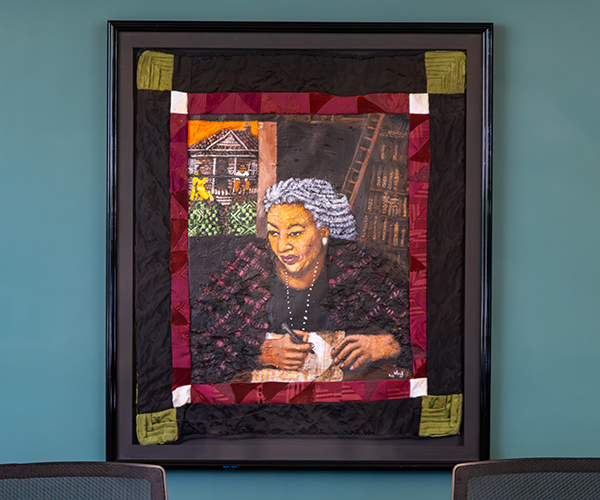Peter Laughner is Cleveland’s great punk rock cautionary tale. A Bay Village native, Laughner was a founding member of legendary punk acts Rocket From The Tomb and Pere Ubu and connected the members of the Dead Boys — all before he drank and drugged himself to death at age 24. Perhaps best remembered by rock critic Lester Bangs’ Creem Magazine obituary “Peter Laughner Is Dead,” Laughner is portrayed as more than just his gunslinging punk rock madman lore in a new memoir by Adele Bertei Peter and the Wolves (Smog Veil, $18.98). Over about 80 pages, the middle installment of Bertei’s three-part memoir paints a portrait of a voracious listener of music of all types, a man struggling with his identity and sexuality, and a balladeer whose artistry and intellectualism weren’t accepted by his peers of the time.
Set against a backdrop of Cleveland’s ‘70s-era industrial wasteland, the story intersects with Bertei’s own artistic journey, which was first propelled by Laughner’s support at an open mic. Soon, the pair became collaborators who wrote songs together, lived together, played in a band called Peter and the Wolves and traveled to New York City to see the Ramones at CBGB with Lester Bangs. Before Bertei’s Cleveland speaking engagements on Oct. 15 at the Beachland Ballroom & Tavern, which also feature readings from notable authors Lucy Sante and Mike DeCapite and a performance from The Kidney Brothers, and on Oct. 20 at Loganberry Books, we talked to the author about her new book, Peter and the Wolves.
Q. All these years later, why do you think we continue to dissect the punk rock scene of Cleveland in the 1970s?
A. Cleveland was an industrial city and a ghost town by the time we were, you know, 19 or 20 years old. I think there was an existential sadness to Cleveland at that time. Music was a way of escaping from that particular sadness and expressing what it felt like to be in a society that was kind of lost. I think there was an explosion in music that was very similar to what happened in Manchester, England, which was kind of a sister city to Cleveland in the way that it was kind of a booming industrial city that saw a sharp decline. I think what was happening was this expression of anger at not wanting to be a cog in the wheel of corporations, working a job that didn't feel life affirming. Rock ‘n’ and roll has always been rebelling against that, and Cleveland was a very important city for the beginnings of punk rock, which really had everything to do with Peter Laughner because he was such a catalyst for that time. And there was such an amazing energy going on at that time in Cleveland with music. I think people are intrigued by that.
Q. Do you think Peter is just a local legend, or do you think he deserves a bigger seat at the table in the pantheon of rock?
A. As I document in the book, there was a lot of drugs and drinking and there was this idea, which was proposed by many famous poets and artists who drank themselves to death like Dylan Thomas, that you had to go to the edge of excess in order to make great art, which is a fallacy, but at the time a lot of people believed it and and indulged in it. Some major rock ‘n’ roll guys and people in the scene saw Peter take things too far and really kind of self-immolate. He was illustrative of that live fast, die young theme. They saw that possibility within themselves. Whether or not he deserves a bigger seat at the table is really more about his story and how profoundly important it is that we don’t destroy ourselves in our quest to make a life out of art and music. I think that aspect deserves a bigger seat at the table.
Q. Last year, Smog Veil released a box set with some of Laughner’s work. Over five discs, you hear an immensely talented artist and songwriter, but what you don’t hear is a finished, studio product. To me, it sounds like an unfinished life. What did you hear when you listened to that box set?
A. I think that box set proved his musicianship. He was an incredible guitar player. I mean right up there with the greats, and if you listen to some of the blues stuff he played on that dobro, I mean it's astounding how good he was. But he was also very insecure in many ways, and he felt like he had this image that he had to live up to which was the hard-drinking, gun-slinging punk rocker, but he was so much more than that and I think that box set plays that out. I mean people like Jeff Tweedy from Wilco (who adopts the lyrics of Laughner’s “Amphetamine” for the band’s song “Misunderstood”) and Guns and Roses (who covered Laughner’s “Ain’t It Fun”) all really understood how important he was. Tom Verlaine (of the band Television) loved his guitar playing, which is, he couldn't get a higher recommendation than Tom Verlaine. So yeah, I guess it just revealed how talented he was.




